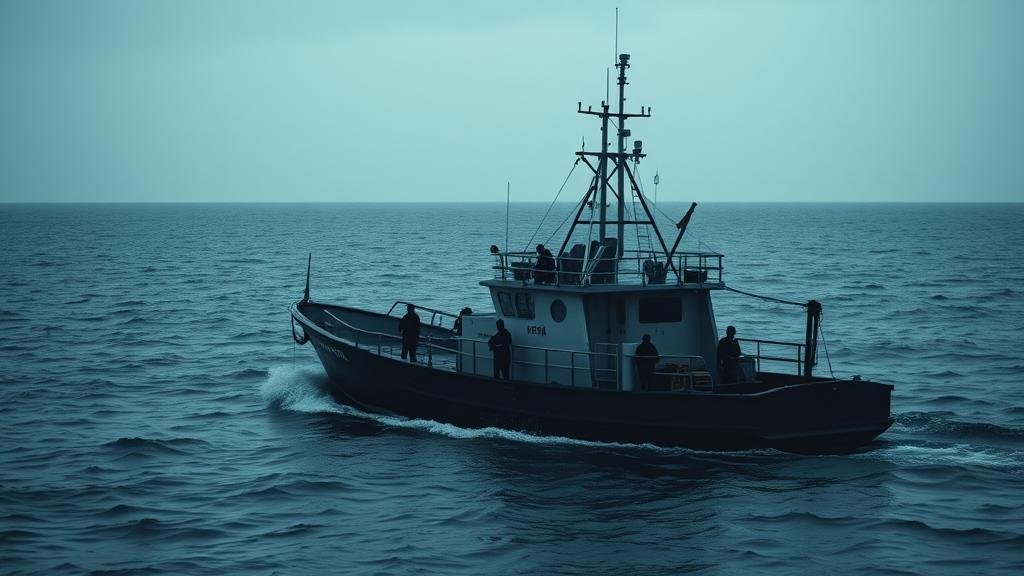The Hidden Human Cost of Canned Tuna: Forced Labor in Your Pantry
Let’s talk about that can of tuna in your pantry. It’s a staple, a quick and easy source of protein. But what if that convenience comes at a hidden human cost? A growing body of evidence reveals that the true price of that cheap canned tuna is often paid by individuals trapped in forced labor on the high seas.
At Creditnewsinsider, we believe you have the right to know the full story. So, let’s delve into the murky depths of the global tuna supply chain.

The Dark Side of the Tuna Supply Chain
The journey from ocean to can is often a deeply flawed process. The majority of the world’s tuna is caught by large fishing fleets that remain at sea for extended periods, far from the reach of labor laws and oversight. This isolation creates a breeding ground for exploitation and human rights abuses.
A shocking Reuters report found that a staggering 80% of the world’s largest canned tuna brands cannot be certain who caught their fish. This lack of transparency enables a host of unethical practices:
- Forced Labor & Debt Bondage: Fishermen, many from Southeast Asian countries, are lured with promises of fair wages, only to find themselves trapped in a cycle of “recruitment debt” that they can never repay.
- Withheld Documents and Wages: Captains often confiscate workers’ passports and identification, making it impossible for them to leave. Wages are frequently withheld for years, if they are paid at all.
- Deplorable Living Conditions: Workers endure grueling 20-hour shifts, subsisting on inadequate food and contaminated water, and sleeping in cramped, unsanitary quarters.
- Violence and Intimidation: Reports from escaped fishermen detail brutal physical and psychological abuse.
This is not a case of a few bad apples; it’s a systemic issue. The practice of “transshipment”—where fishing boats transfer their catch to larger cargo ships at sea—exacerbates the problem. It allows these vessels to remain offshore indefinitely, laundering not only fish but also human suffering into the supply chain, often intertwined with illegal fishing.

The Retailer Connection
So, how does this connect to your grocery store? Major retailers are the final and most powerful link in this chain. Their purchasing decisions hold immense power. When they prioritize low prices over ethical sourcing and fail to demand transparency in their supply chains, they become complicit in these human rights abuses.
A landmark lawsuit in California brought this issue to the forefront, accusing canned tuna giant Bumble Bee of knowingly profiting from forced labor. The lawsuit, filed by fishermen, detailed horrific conditions on a Taiwanese vessel that supplied tuna to the company.

The Human Toll: “We Were Treated Like Slaves”
The stories from those who have escaped these floating prisons are heartbreaking. They speak of being fed leftover bait, watching friends die from preventable illnesses, and living in constant fear.
One survivor’s words are a stark reminder of the reality: “We were treated like slaves.”
These are not just disgruntled employees; they are victims of a system that robs them of their dignity and, in some cases, their lives.
A Shift Towards Accountability
Fortunately, a tide of change is beginning to form. Human rights organizations and journalists are shedding light on this dark corner of the fishing industry. Lawsuits are creating financial incentives for companies to reform their practices.
Even certification bodies are taking notice. The Marine Stewardship Council (MSC), known for its blue fish sustainability logo, has acknowledged the threat of forced labor in its 2023 Tuna Report and now requires fisheries to demonstrate ethical treatment of workers.

How You Can Drive Change
Your choices as a consumer have power. Here’s how you can make a difference:
- Do Your Research: Before you buy, investigate your favorite tuna brand. Resources like Greenpeace and the Monterey Bay Aquarium’s Seafood Watch provide ratings and report cards.
- Look for Meaningful Labels: While “dolphin-safe” is a good start, look for a “Fair Trade Certified” seal. This is currently one of the strongest assurances that the workers who caught your fish were treated fairly.
- Engage with Your Grocer: Ask your local store about their sourcing policies. The more consumers who ask, “Is this tuna free from forced labor?”, the more pressure retailers will feel to act.
- Support Ethical Brands: Choose brands that are transparent about their supply chains. Ethically sourced tuna may cost a bit more, but that price reflects a commitment to fair wages and safe working conditions.
Your Wallet, Your Voice
The convenience of canned tuna should not come at the expense of human dignity. The tuna supply chain is rife with exploitation, and retailers have a moral obligation to ensure their products are ethically sourced. Until they do, the responsibility falls to us. By asking questions and making informed choices, we can send a powerful message to the industry: human rights are not negotiable.